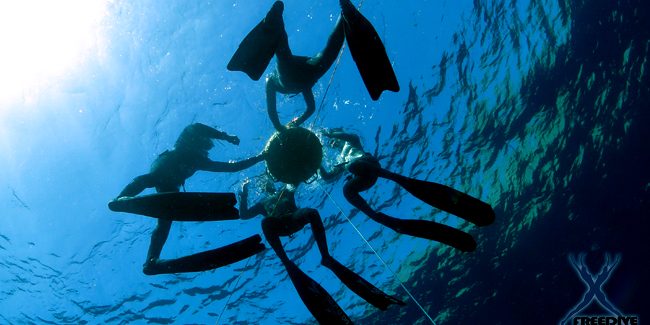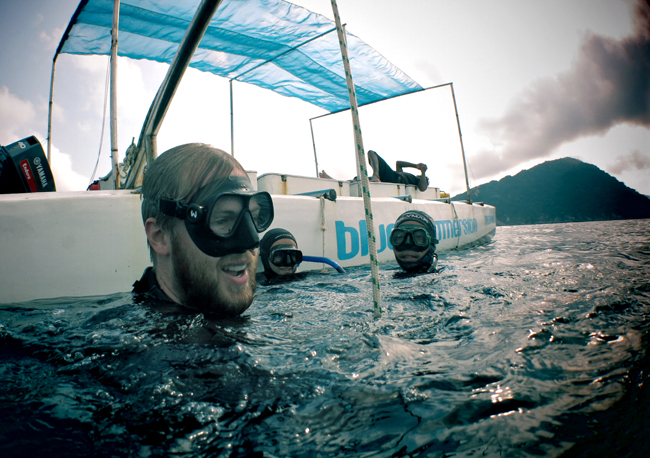From the outside Freediving looks like a very individualistic and lonely sport. Imagine someone breathing up at the surface preparing for his next dive, looking completely disconnected from the world around him; him descending alone towards the bottom of the ocean; or floating in a pool doing a static while he’s lost on his own thoughts. But Freediving is not a lonely sport. Besides, the number one rule in Freediving training is ‘Never dive alone’. Let’s appreciate the buddy!
Safety
Number one rule in Freediving training is “NEVER DIVE ALONE”.
The main reason why you must have a buddy around is to provide safety. Another Freediver, preferably of the same level as you, who makes sure you get back to the surface safely. Someone who keeps an eye out for you. It is important that you feel comfortable with our buddy and that you trust him. When you go for a new personal best you want a buddy you can count on.
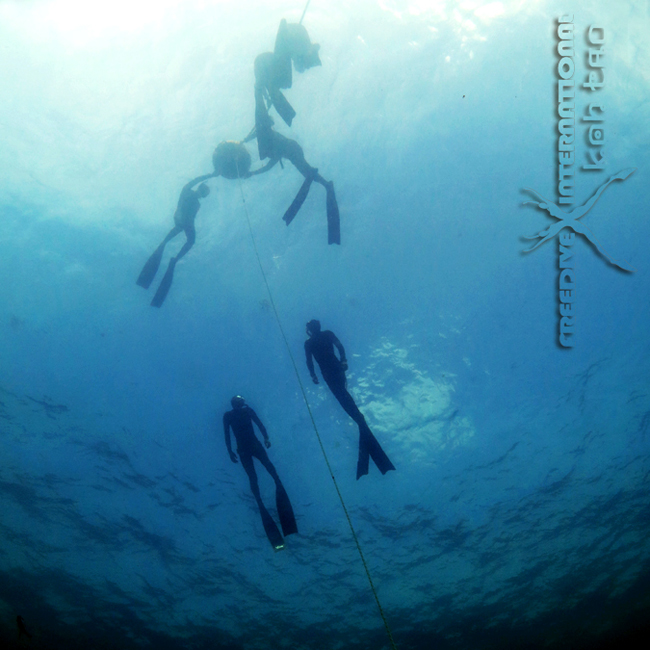
During courses your instructor is often also your buddy and your coach. This photo was taken in Thailand, at Blue Immersion during a training session with our great instructor Pavel while he’s doing safety for the group. Photo credit Linda Paganelli.
Coach
Often the buddy is also a coach. A coach that helps you through the mental struggles in static apnea, who gives you confidence before a deep dve, and gives you support after failed dives. If he’s equally or more experienced than yourself, he can give you feedback. In fact it is hard to solve every problem on your own, especially as you and sometimes we simply don’t see them. How to improve your technique, how to help with equalization and mental barriers. A good coach will support you and help you whenever you need.
Competition
A lot of us train to go deeper, to hold our breath longer or something else that requires pushing our comfort zone. Some of us have a very strong internal motivation that keeps us going, without any external drive. But most of us perform better if there is some form of external motivation. Let’s admit that we want to be better than our buddy, or at least not fall too far behind. Seeing your buddy breaking your personal best can give that extra confidence to expand your comfort zone: ‘If he can do it, I can do it too!’
Teacher
Luckily our Freediving education doesn’t stop after the first Freediving courses. A buddy can teach you a lot. Be open to feedback and never think you know better. Maybe you buddy knows something you are not aware of. Especially training together with a buddy who is a better freediver or has more experience can teach you a lot. Change your buddy from time to time to get in some variation and different feedback. It maybe takes a dive session or two to get to know each other, but who knows you can teach each other some new tricks.
Sharing
Do you remember when you got your first promotion, graduated from college or passed a course? How did you celebrate it? Alone? Imagine coming up from your deepest dive ever and there is nobody around to celebrate it with. We want to be recognized and share achievements with friends. Freediving is worth sharing. As with any good experience, we rather share than live it alone. We don’t want to dive alone.
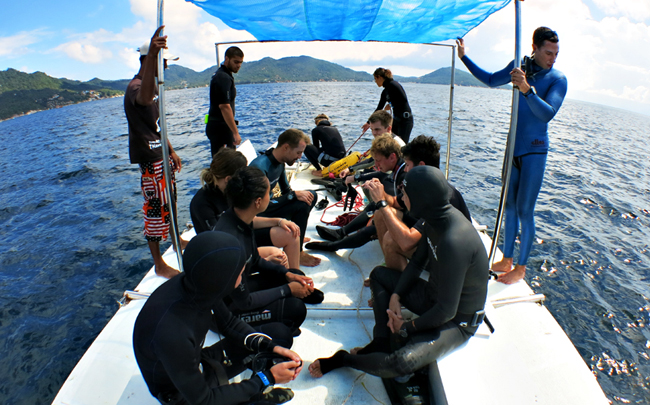
Sharing expectation before a session and talking about the experience after training is a common topic of conversation during the boat trips to and from the dive spot. This is out boat in Koh Tao, Thailand.
So why is Freediving a team sport?
‘Never dive alone’ means more than just having a buddy that keeps you company for safety. A buddy goes through the same struggles and he is the one you share your good moments with. A buddy is there to help you break mental barriers. A buddy can be a teacher or motivation to step up our game. Freediving is not an individualistic sport, it is a team sport.
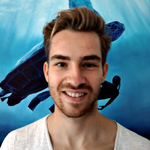
By Sander Verbrugge, intern at Blue Immersion, Koh Tao, Thailand. Sander is fascinated by what the human body is capable of, and that’s why freediving draw his attention. After he did his Level 1 at Blue Immersion; he was sold and applied for the internship. After his internship he will go back to university for his Master Human Movement Sciences.

